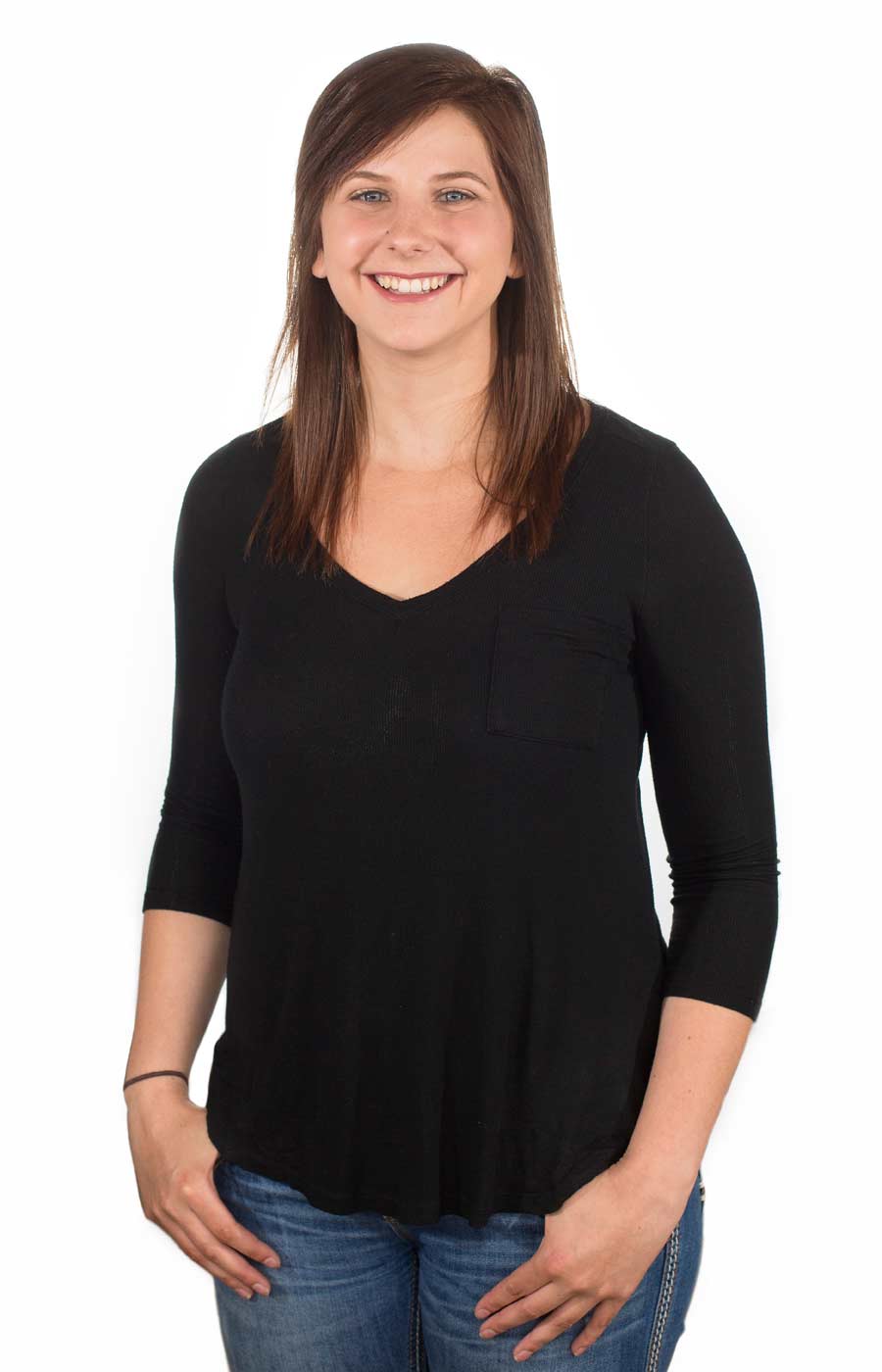family background/Tarrah works with her mother Michelle Te Velde on their family pear orchard that was passed down to them by Tarrah’s grandfather Don Montgomery. The farm grows Bosc, D’Anjou and Bartlett pears mostly for the fresh market.
age / 20
crops / Pears
business / Te Velde Farms
 How did you get your start?
How did you get your start?
I’ve lived on the farm my whole life, and I have two older sisters and the farm was part of the family dynamic. We always had an orchard manager, but we helped out with irrigation and harvest.
I remember being about four years old and all of us were out moving handlines. Dad would be carrying five pipes, both of my sisters and mom were carrying two, and I would be hunting around for the shortest one that I could drag behind me, getting them coated in grass and dirt.
As we’ve grown, responsibilities have been changing hands. We installed a new orchard three years ago, and because it’s not in fruit, our orchard manager doesn’t have much to do with it.
Instead, he’s been teaching us what to do with new plantings.
What challenges are you working on?
The biggest problem we face is with pear psylla — you just can’t get rid of them.
You try and you try but they keep coming back. They’re hard-headed bugs. I’ve learned about them in classes and what pesticides work on them. But then you go back to your orchards and the trees are still hit with psylla, creating honeydew.
At least with school I understand how the pesticides work and how often I should apply them.
Through my work with staff at Washington State University Research and Extension Center in Wenatchee, I know that if I apply sprays at the right times you can get rid of more pear psylla while keeping some of their natural enemies.
Has higher education helped you in your career?
Until school, I’d never heard of integrated pest management techniques or about beneficial pests.
When I was high school, I thought that all bugs shouldn’t be in the orchard. When I went to Wenatchee Valley College, my entomology teacher opened the door about beneficials like green lacewing.
He taught me that having a ton of bugs in the orchard, as long as they are predators or parasitoid, could do more than a spray can do to protect crops. That class really changed how I think.
How has your family guided your career?
My mom had to take over the orchards six years ago when my grandfather passed.
At first all of us had concerns about her, a single mother who works in Ellensburg, Washington, would be taking care of orchards in Cashmere.
At that time, a lot of people who knew us offered to buy the orchards from us and she just said no.
It was her strength that showed me that I could go into the tree fruit industry and have the respect of my community.
I know it’d be easier for us to do different things, but the community has been so great supporting us. So now, watching mom never give up, even when she’s frustrated, I’ve never heard her consider selling the orchards. It was her strength that pushed me to choose this career.
What are your goals beyond running your orchard?
In high school my agriculture teacher would bring in fieldmen who could look at a line of pears and apples that were beat up, had bites, and identify any type of injuries. They could tell you what bug did it or whether the damage occurred at blossom, and I thought that I wanted to be able to do that.
Being able to step into that role — I wasn’t sure if I could do that — because all the fieldmen here are men.
I was concerned about getting a job if I spent four years learning to be a fieldman. When I arrived at college, I had instructors who believed in me and encouraged me to be a grower.
At that time I was able to find a job at the WSU Research and Extension program working for three incredible women. The fact that they are so high up in the program and they know so much, it just made me believe I could succeed.
What would you tell young growers about farming?
Farming is difficult. There are days I wake up and I wish I could sleep in, but I know I’ve gotta go out because the bugs are active.
It’s not the most glamorous career, but if you’re passionate — that’s all that should matter. You don’t need to worry about what other people think as long as you have the drive and determination to do it.
– by TJ Mullinax






Leave A Comment